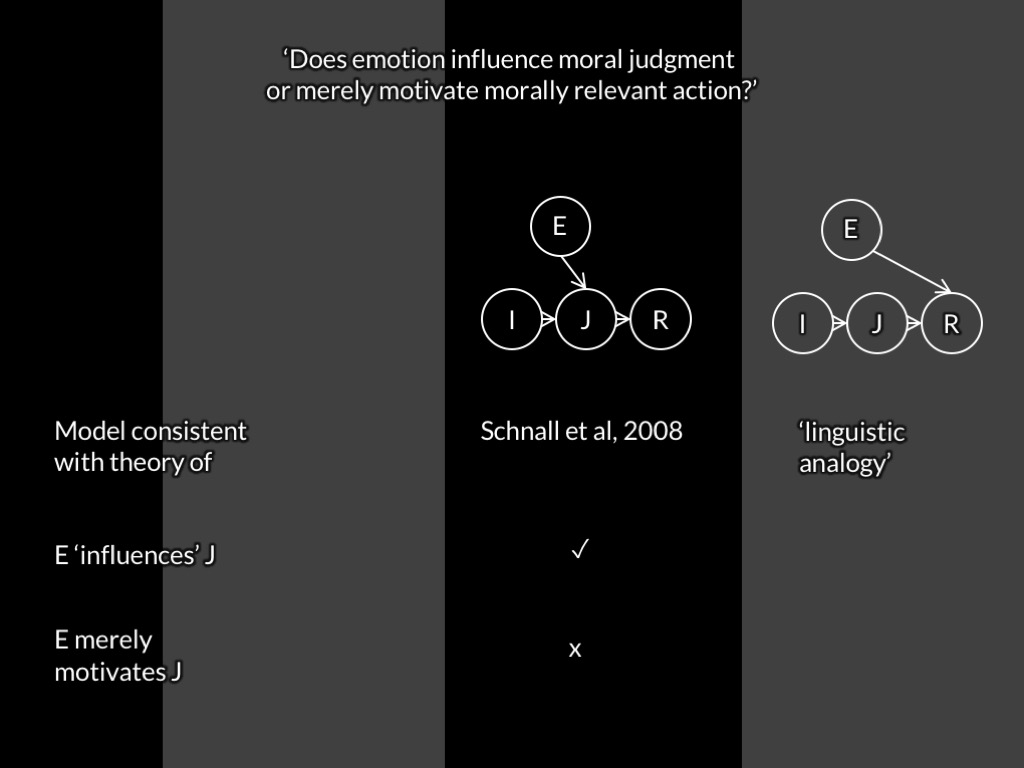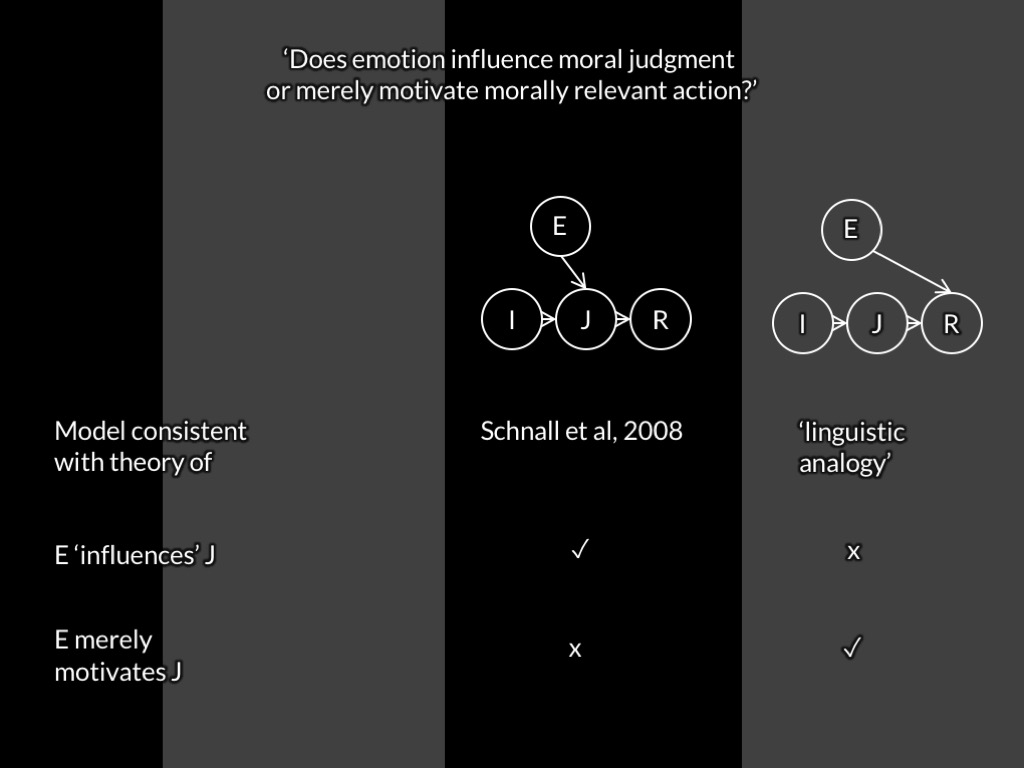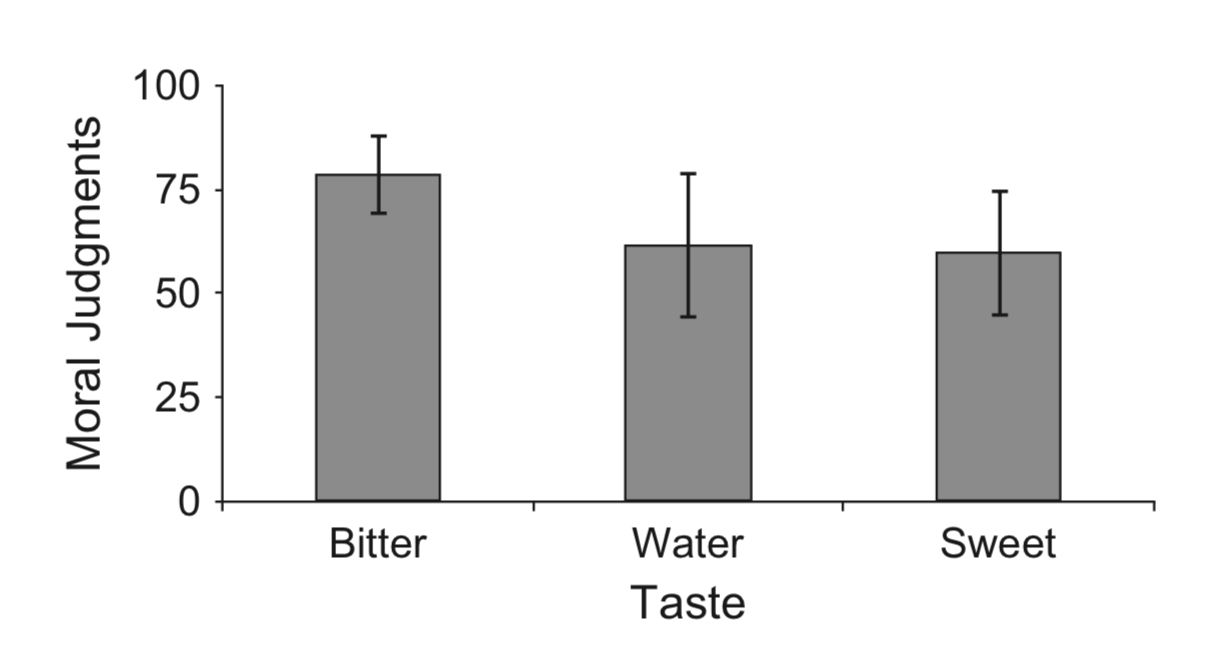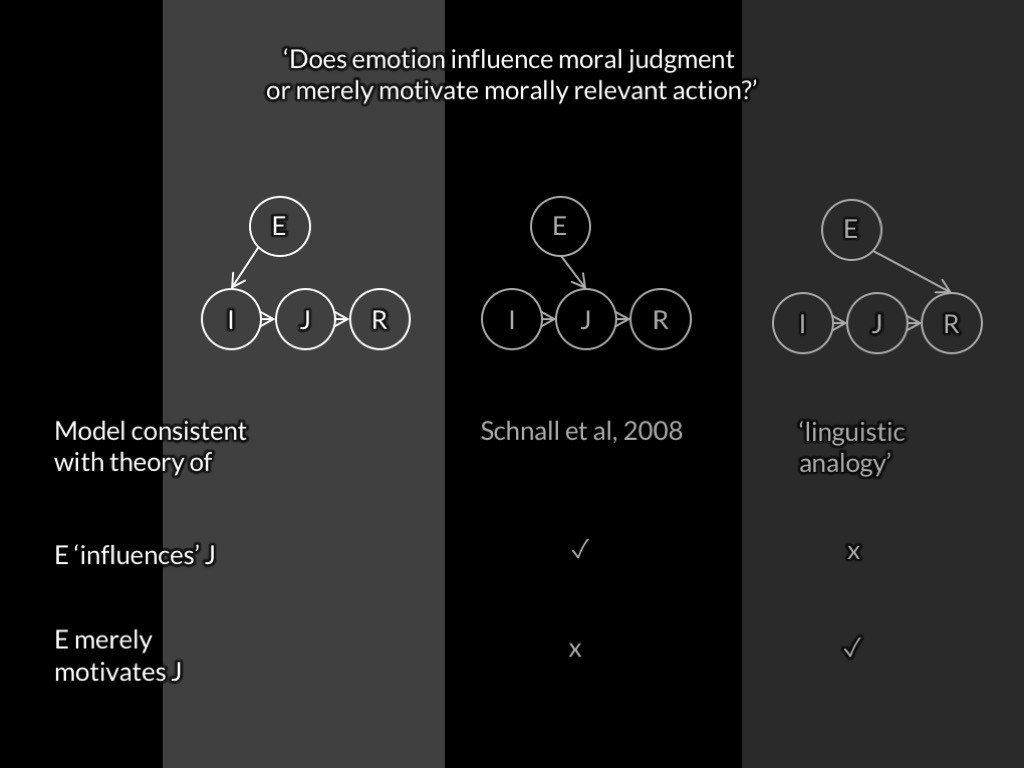Click here and press the right key for the next slide.
(This may not work on mobile or ipad. You can try using chrome or firefox, but even that may fail. Sorry.)
also ...
Press the left key to go backwards (or swipe right)
Press n to toggle whether notes are shown (or add '?notes' to the url before the #)
Press m or double tap to slide thumbnails (menu)
Press ? at any time to show the keyboard shortcuts
‘Does emotion influence moral judgment or merely motivate morally relevant action?’
Huebner et al, 2009

Huebner et al, 2009 figure 1 (part)

Huebner et al, 2009 figure 1 (part)

Huebner et al, 2009 figure 1
‘these data fail to isolate the precise point at which emotion has a role in our moral psychology. ...
emotional stimuli ... presented before the scenario is read could
... influence the interpretation of the scenario
or the question.
Or, emotion could act as a gain on what has already been conceived as a moral infraction (thereby, increasing the severity of the perceived wrong)’
puzzle
Why do feelings of disgust influence moral intuitoins?
(And why do we feel disgust in response to moral transgressions?)
puzzle
Why do patterns in moral intutions reflect legal principles humans are typically unaware of?









Eskine et al, 2011 figure 1

Just because it is logically possible
doesn’t mean it is a hypothesis worth testing.



